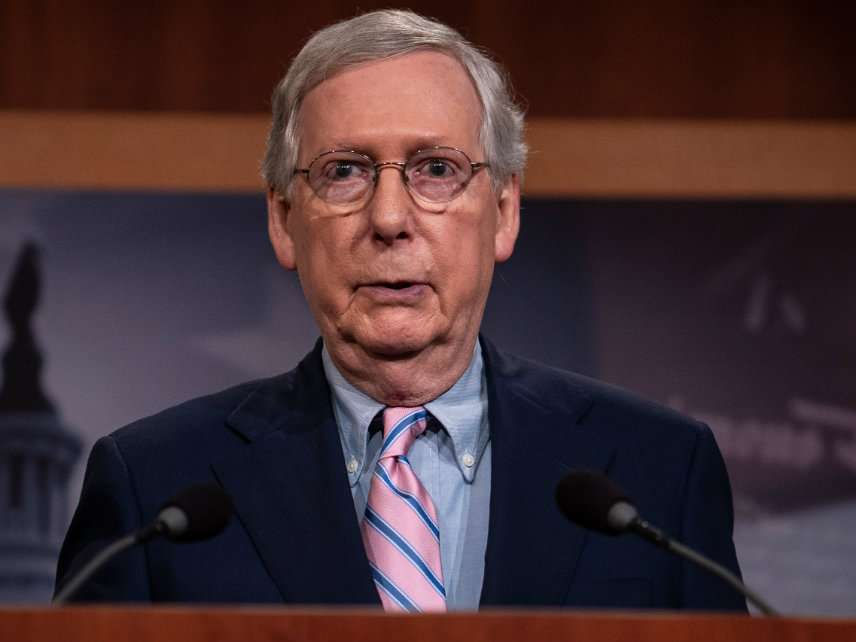Mitch McConnell Touts Wild Spending Bills as 'Bipartisan' Accomplishments
- OurStudio

- Nov 14, 2018
- 3 min read

KEN CEDENO/UPI/Newscom
Senate Majority Leader Mitch McConnell (R–Ky.) celebrated bipartisanship in a Fox News op-ed yesterday. There's just one problem: His idea of bipartisanship seems to mean endless federal government spending.
The purpose of McConnell's op-ed was to call on Democrats, who won control of the House of Representatives last week, to work with Republicans. If both parties can come together, McConnell indicates there's a lot they can accomplish, just as they have in recent years.
"I have good news: reports of the death of bipartisanship in Washington have been wildly exaggerated," the Kentucky Republican writes. "In fact, some of the most significant accomplishments of this Congress have been delivered with overwhelmingly bipartisan support."
So what "significant accomplishments" is he referring to? More federal government spending, of course! McConnell writes:
Under bipartisan committee leadership, we took major steps toward restoring regular order to our appropriations process. The Senate passed more funding measures before the beginning of this fiscal year than at any point in the last two decades. The measures included the largest year-on-year increase in defense funding in 15 years, which put an end to the Obama-era atrophy of our armed forces.
He's not wrong. For the most part, massively wasteful government spending is one thing Republicans and Democrats seem to agree on. In March, for instance, President Donald Trump signed a $1.3 trillion omnibus bill. The spending package had easily passed both houses of Congress with relatively bipartisan support, despite the many ridiculous things it allocated money for (nine of which Reason's Eric Boehm pointed out at the time).
Lawmakers weren't done. In August, Trump signed a $716 billion military budget for the 2019 fiscal year that boosted the Pentagon's spending by a whopping $82 billion. As Boehm noted, that $82 billion alone is more than the military budgets of most countries, including Russia. There was virtually no major resistance, as the bill passed 359-54 in the House and 87-10 in the Senate.
And lest one think the Department of Defense needs all that money to keep Americans safe, a 2013 Reuters investigation revealed that "$8.5 trillion in taxpayer money doled out to the Pentagon since 1996…has never been accounted for." In September, Reason's Zuri Davis reported on one egregious example of Pentagon waste: The Air Force spent over $300,000 on 391 custom coffee mugs over a two-year period.
As if that wasn't enough, Congress passed another giant spending bill in September, this one allocating $854 billion to various departments in the executive branch. Just seven senators voted no on the bill: six Republicans and Sen. Bernie Sanders (I–Vt.). Trump actually got upset about the bill, but not due to its price tag. He threw a fit because there was no new money for his proposed wall on the U.S.-Mexico border, though he ended up signing it anyway.
This kind of spending comes at a cost. The federal government ended the 2018 fiscal year with a $779 billion deficit, its largest since 2012. And according to the Congressional Budget Office, the deficit will exceed $1 trillion by 2020. In total, the federal government owes roughly $21 trillion, and as Reason's Nick Gillespie warned this week, even the interest payments on that massive debt will soon exceed what we spend on many other federal programs.
Unfortunately, neither Republicans nor Democrats in either house of Congress seem to care. McConnell is partly right: Bipartisanship can be good, just not when one of the only things lawmakers can agree on is more wild spending.




Comments